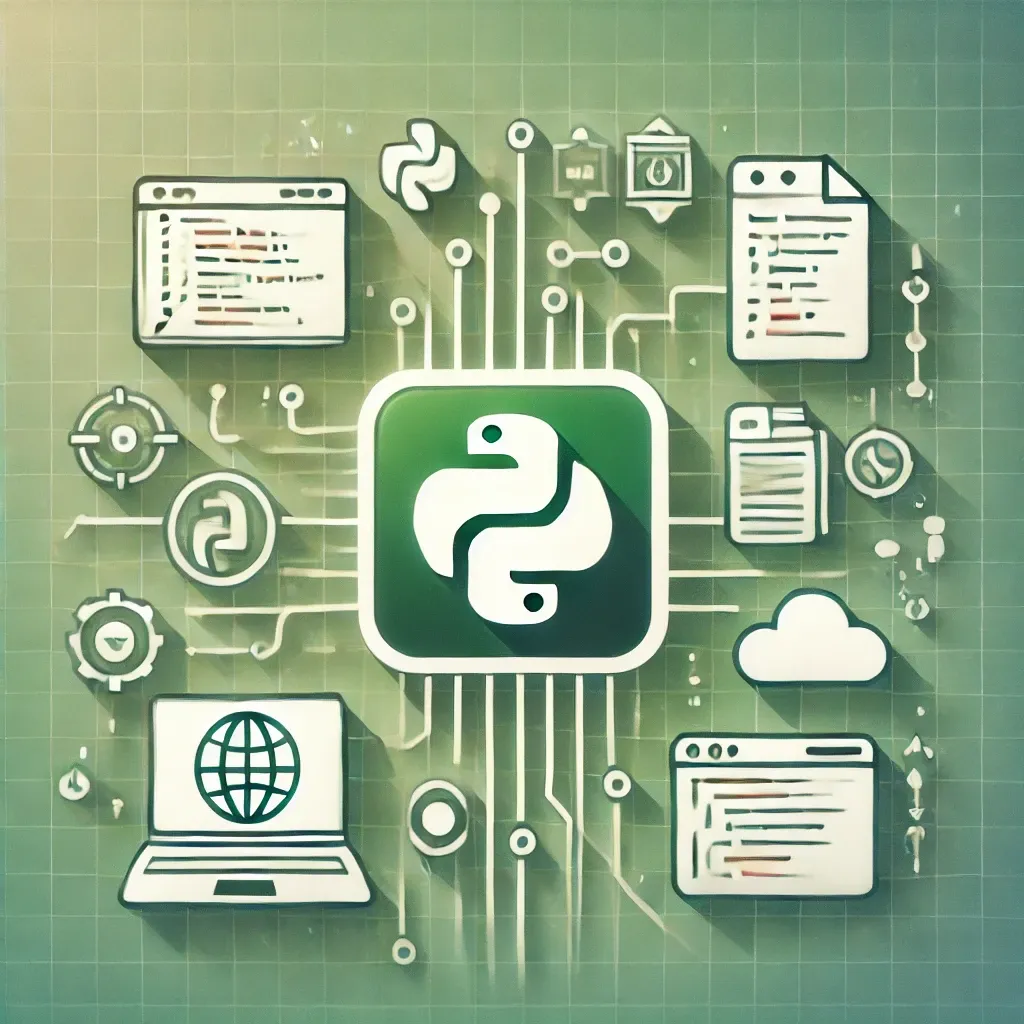
Why Django is the Top Choice for Web Development in 2024
When it comes to building reliable, scalable, and secure web applications, Django is one of the most popular frameworks in the Python ecosystem. Originally developed over a decade ago, Django’s popularity continues to grow due to its powerful features, ease of use, and vibrant community. Whether you're a beginner or an experienced developer, Django offers a suite of tools that make web development not only faster but also more enjoyable.
1. Rapid Development with Django’s “Batteries-Included” Philosophy
Django is designed with a “batteries-included” philosophy, which means it includes many tools and utilities right out of the box. From user authentication and session management to form handling and routing, Django comes with almost everything needed to build complex web applications. This feature minimizes the time spent on setting up basic functionalities, allowing developers to focus on creating unique application features.
Example:
With Django’s in-built ORM (Object-Relational Mapping) system, you can easily define data models without needing to write SQL queries. This reduces code complexity and helps maintain a clean structure for your data models.
2. Robust Security Features
Security is a top priority for Django. The framework provides built-in protections against common security threats such as SQL injection, cross-site scripting (XSS), cross-site request forgery (CSRF), and clickjacking. Django also encourages best practices, helping developers manage sensitive information, prevent data breaches, and build secure applications.
In a world where data privacy and security regulations are tightening, Django’s commitment to security makes it an ideal choice for handling sensitive data and protecting user information.
3. Scalability and Flexibility
Whether you're building a small website or a large enterprise-level application, Django’s scalability and flexibility can support your growth. Django’s modular architecture allows developers to add or remove components as needed. With its ability to handle high traffic loads and its compatibility with various databases and caching options, Django is the framework of choice for many high-traffic websites, including Instagram and Pinterest.
Example:
Django’s ability to integrate with technologies like Redis and PostgreSQL makes it easy to build applications that handle thousands of concurrent users. With Django Channels, developers can even add real-time functionalities like chat and notifications to their applications.
4. Strong Community and Comprehensive Documentation
Django boasts a large, active community that continuously contributes to its development and provides support. Its comprehensive documentation is often regarded as one of the best in the programming world, making it an excellent choice for beginners. Additionally, numerous forums, blogs, and online courses are available, making it easy to find solutions to common problems and learn advanced techniques.
Having a strong community behind it also means that Django is continuously updated to include the latest technology trends and security patches, keeping your applications modern and safe.
5. SEO-Friendly with Support for Modern Web Standards
In today’s competitive online landscape, SEO is crucial. Django makes it easier to build SEO-friendly web applications by providing tools for URL routing, generating clean URLs, and optimizing loading speeds. Its compatibility with third-party SEO tools and frameworks helps improve visibility on search engines, giving your web application a competitive edge.
Example:
Django’s “Django SEO Framework” is a popular tool that helps developers implement SEO best practices, from creating meta tags to managing sitemaps and URL structures, ensuring that your web application ranks higher in search results.
6. Python-Based: Easy to Learn and Widely Used
One of Django’s greatest strengths is its foundation on Python, one of the most popular programming languages in the world. Python’s simplicity and readability make Django accessible to developers of all skill levels. The vast Python ecosystem also provides a range of libraries that can be integrated into Django projects, enabling everything from data analysis to machine learning.
Example:
For instance, Django can seamlessly integrate with Python libraries like Pandas and NumPy, making it a suitable choice for applications that require data processing and scientific computing.
Conclusion: Why Django is the Right Framework for Your Next Project
Choosing the right framework for your web application is crucial for ensuring its success, scalability, and security. With its rapid development capabilities, robust security features, scalability, and a strong community, Django is an ideal choice for modern web applications. Whether you’re building a blog, an e-commerce platform, or a real-time web application, Django provides the tools and flexibility you need to succeed.
In a digital world where the landscape is constantly evolving, Django’s commitment to excellence, security, and community support ensures that it will remain a preferred choice for developers in 2024 and beyond. Start your journey with Django today and unlock the potential of a framework that’s built to last.
Are you considering Django for your next web development project? Feel free to share your thoughts and experiences in the comments below!







0 Comments